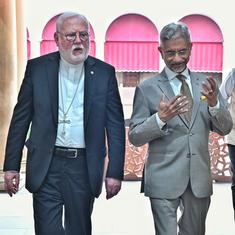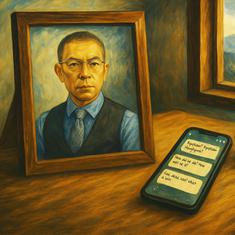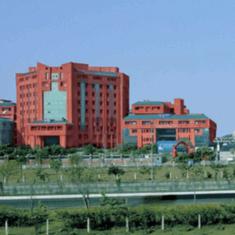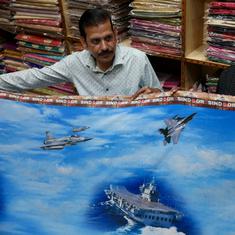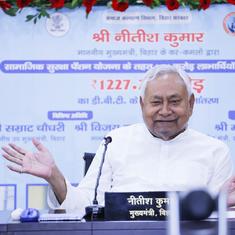Not ruling out investigation: S Jaishankar asks Canada to share evidence on Hardeep Nijjar’s killing
The external affairs minister also reiterated that New Delhi is of the opinion that Canada has given operative space to Sikh separatists.

India has not ruled out an investigation into the killing of Sikh separatist leader Hardeep Singh Nijjar and has asked Canada for evidence to support its allegations about New Delhi’s involvement in the case, External Affairs Minister S Jaishankar said on Wednesday.
Jaishankar made the remarks during an event titled “How a billion people see the world” hosted by the Indian High Commission in London.
On September 18, Canadian Prime Minister Justin Trudeau told the country’s Parliament that intelligence agencies were actively pursuing “credible allegations” tying agents of the Indian government to Nijjar’s killing. He was killed by masked gunmen on June 18 near Vancouver.
Nijjar was a supporter of Khalistan, an independent Sikh nation sought by some groups. He was the head of the Khalistan Tiger Force, which is designated a terrorist outfit in India.
India rejected Trudeau’s allegations as “absurd and motivated”. Later, Jaishankar said he had informed Canada that it was not New Delhi’s “policy” to engage in such acts.
On Wednesday, Jaishankar said that he had discussed the matter with his Canadian counterpart Melanie Joly and emphasised that Ottawa was yet to share any evidence.
He also reiterated that the Indian government is of the opinion that Canada has given operative space to separatist elements.
“Freedom of speech and freedom of expression also comes with a certain responsibility,” said Jaishankar. “The misuse of those freedoms and the toleration of that misuse for political purposes would be very wrong.”
The minister in September also stated that “terrorists and extremists” operating in Canada have been a point of contention for long between the two countries.
“In the last few years, it [diplomatic crisis with Canada] has come back into play because of what we consider to be a very permissive Canadian attitude towards terrorists, extremists who openly advocate violence,” Jaishankar said during his visit to the United States.
‘Didn’t seek information on Khalistani elements from the UK’
Jaishankar has dismissed a media report claiming that he pressured newly appointed United Kingdom Foreign Secretary David Cameron to provide information about pro-Khalistani elements involved in violence at the Indian High Commission in London earlier this year, reported The Hindu on Thursday.
On March 19, a group of protestors scaled a part of the High Commission building and one of them attempted to pull down the Indian flag from there. However, a staff member prevented him from doing so and secured the flag.
The protestors were demonstrating against a crackdown by security forces in Punjab against Sikh group Waris Punjab De – led by Khalistan supporter Amritpal Singh.
The National Investigation Agency has requested authorities in the United Kingdom to share specific details about suspects in the March 19 violence case under the Mutual Legal Assistance Treaty, The Indian Express reported on Tuesday.
The Guardian reported on Tuesday that India has sent 24 queries under the treaty, concerning “the organisers of the protest, their credentials, their permissions”.
Responding to questions about this, Jaishankar said that he had not discussed the Khalistani issue with Cameron, who he met on Monday. However, he had discussed the issue with the newly appointed Home Secretary James Cleverly.
He also said that “the gravity of the situation is sharply recognised” and the United Kingdom has taken “some steps” after the protests.



